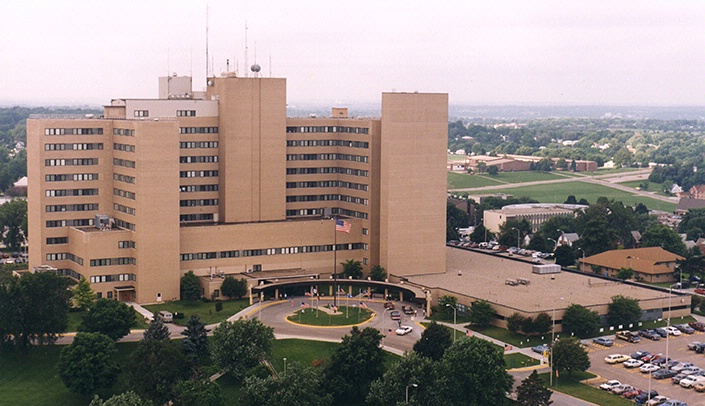There has been a change at the Veterans Affairs Nebraska Western Iowa Health Care System. For many years UNMC Internal Medicine residents have provided care in a continuity clinic at the Omaha VA. The faculty and resident-staffed clinic has changed its focus from a continuity-of-care to an open-access clinic where immediate veteran needs can be met.
In collaboration with VA leadership, Larry Mitchell, MD, VA assistant chief of primary care and associate program director for Internal Medicine at UNMC, along with Gale Etherton, MD, VA chief of health informatics, and staff members of the clinic, changed the clinic model to a same-day access clinic.
The same-day access clinic increases veterans' access to physician care for immediate needs. The continuity-of-care patients were re-directed to full-time VA physicians who could absorb their care and be available daily. It also improves resident satisfaction by giving them exposure to a broader variety of medical issues in the acute setting, and, it frees up their time from the daily continuity of care duties so that they may focus on other monthly resident duties during their busy day.
"Congestive heart failure patients don't always need to be treated in the hospital. We can manage their medications and check their clinical response as outpatients, and keep them out of the hospital," Dr. Mitchell said. "Other than ridding to duplicate the continuity clinic the residents participate in at the Midtown Clinic, we chose to supplement their education with more immediate care medicine."
Another thing Dr. Mitchell and his colleagues want to incorporate into this clinic over time is to include more outpatient procedures – like joint injections, skin procedures, biopsies and removal of suspicious skin lesions – again, to give residents a broad medical exposure.
By seeing acute care patients, the team hopes also to unburden the Emergency Room of the lower acuity care patients, who can be seen in a clinic setting at lower co-pay cost. They also want to provide the veterans with better access to care by being available for more immediate outpatient needs.
"It benefits the residents in their education, it benefits the veterans in their access to care and it benefits the VA by directing care out of the ER to a more appropriate setting and a lower cost setting," Dr. Mitchell said. "That was our goal."
